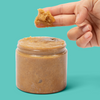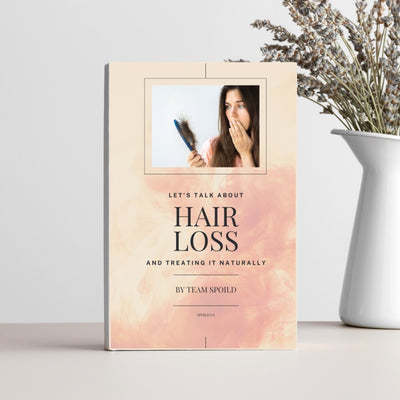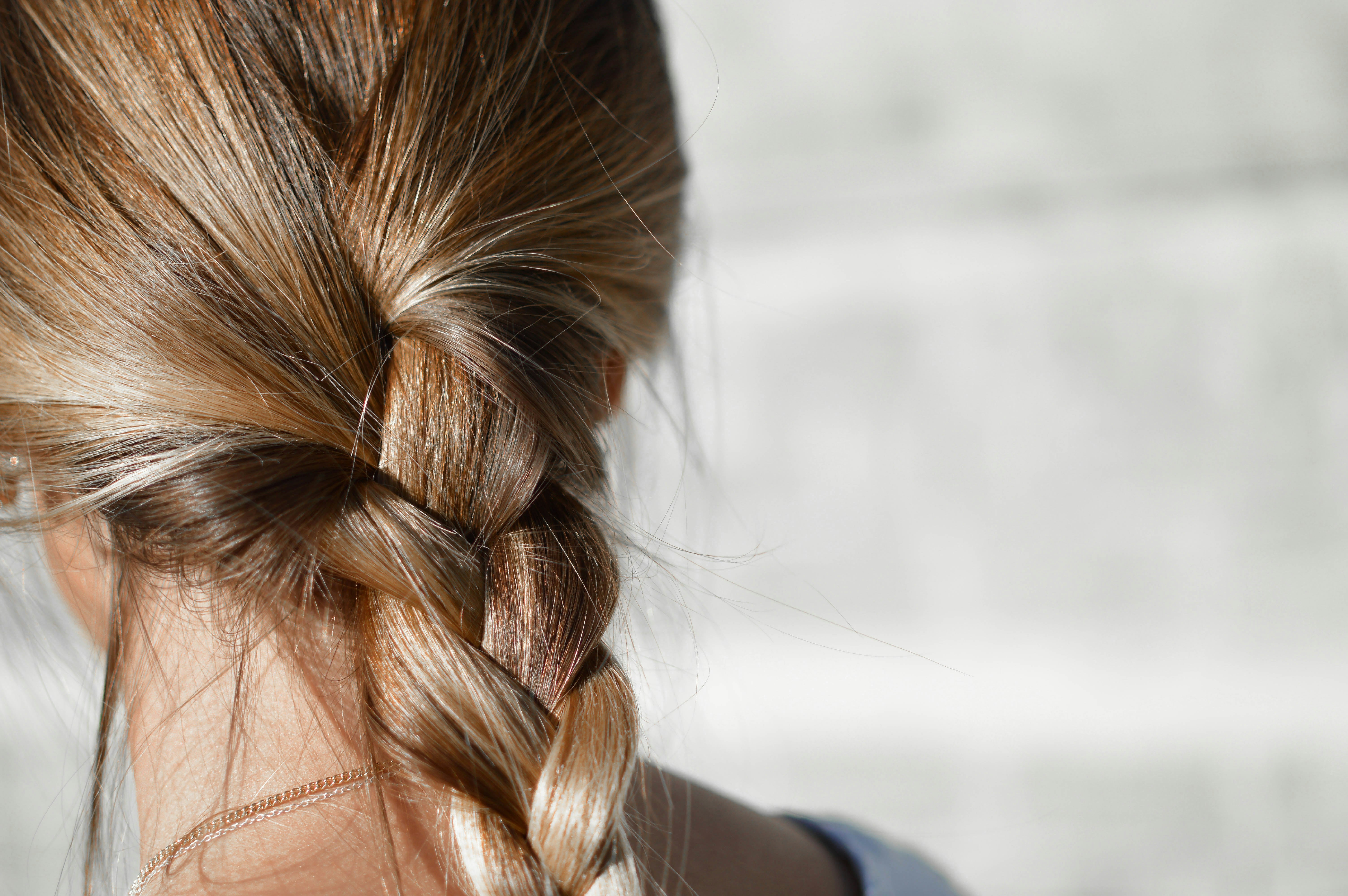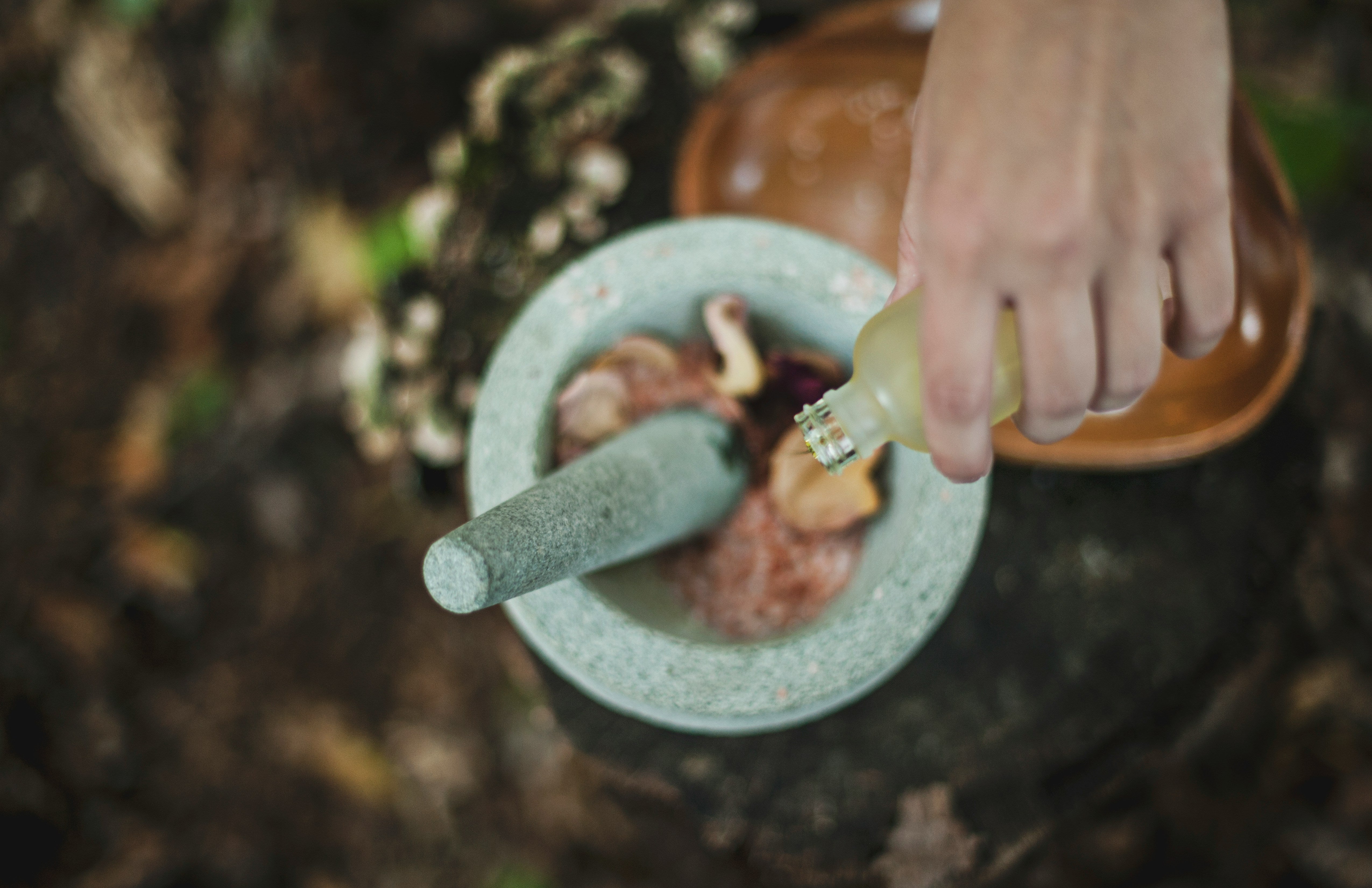Batana Oil vs Palm Oil: Is Batana Oil the Same as Palm Oil? Key Differences to Consider
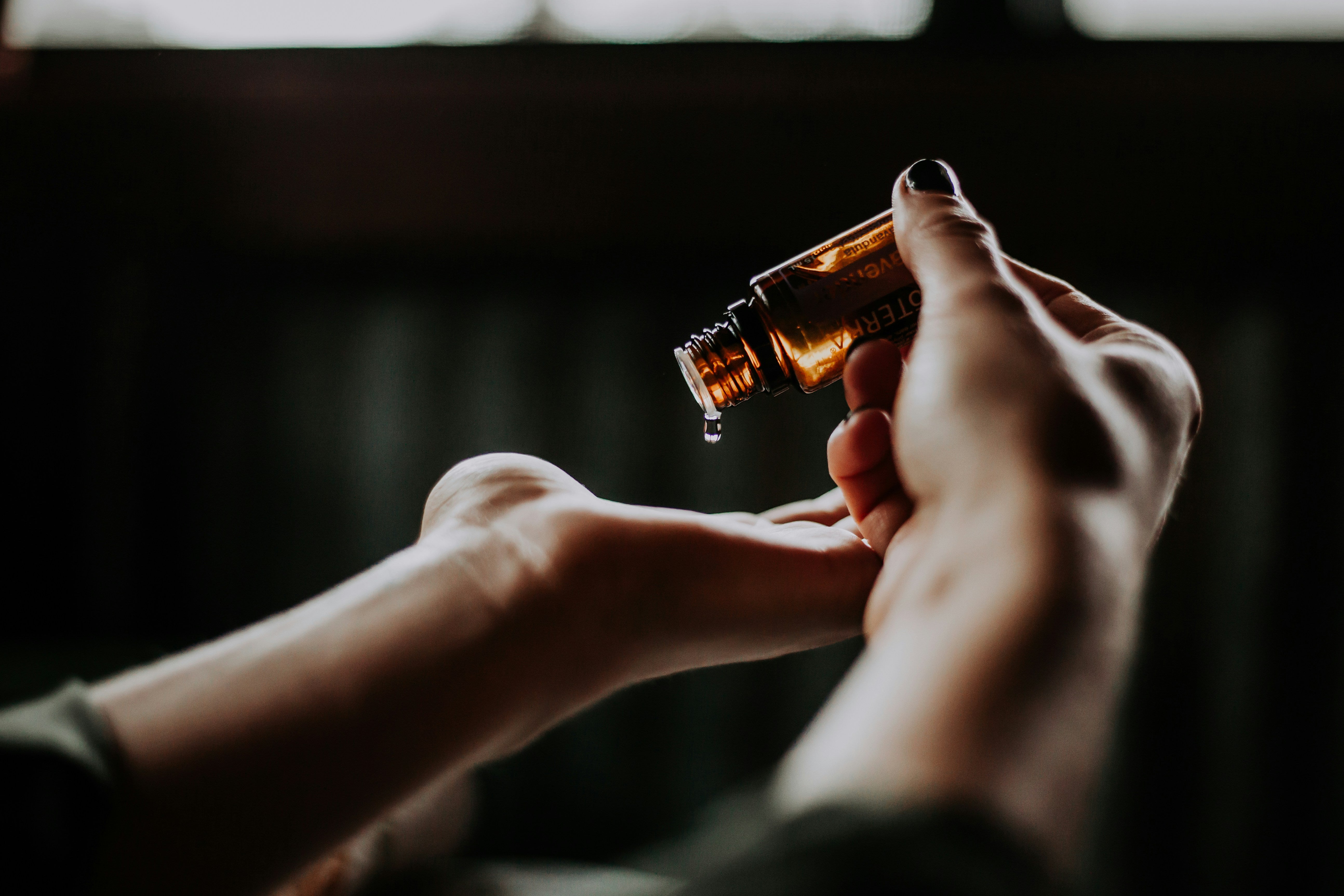
If you feel like your hair isn’t what it used to be, you’re not alone! Age, stress, and many other factors can cause our hair to thin, break, become dull, and generally just lose its magic. Luckily, certain natural oils can help restore our hair to its glory days, without the need for chemicals or expensive salon treatments!
There are lots of oils to choose from, but today we’re going to talk about batana oil vs palm oil. Let’s explore which is better, what they can do for your hair, and whether you should combine them in your haircare routine.
You’ll soon see that palm oil brings some benefits, but there’s no substitute for 100% batana oil. This pure, raw oil is a treasured Honduran beauty secret that restores damaged hair and promotes healthy skin. And at Spoild, we have the best batana oil out there! Try it today and see why 40,000 people trust us with their haircare…
Is Batana Oil the Same as Palm Oil?
So, is batana oil the same as palm oil? At first glance, batana oil and palm oil may seem similar, and they do both come from palm trees. However, there are some pretty important differences between batana oil vs palm oil. Let’s take a look.
Overview of Batana Oil
Batana oil comes from the nuts of the American oil palm (Elaeis oleifera), which is native to Central and South America. Traditionally used by the Miskito people of Honduras, batana oil is incredible for strengthening hair, restoring damaged strands, and promoting skin health.
What does batana oil smell like? The extraction process involves hand-processing the nuts to produce a rich, dark brown oil with a distinct earthy aroma. Its high levels of fatty acids and antioxidants are what make it so powerful for hair health.
Overview of Palm Oil
Palm oil, on the other hand, is sourced from the fruit of the African oil palm (Elaeis guineensis), which is mostly grown in tropical regions such as Indonesia and Malaysia. It is one of the most widely used vegetable oils in the world, found in cooking oils, processed foods, cosmetics, and even biofuels.
Palm oil can be further classified into crude palm oil (extracted from the fruit’s flesh) and palm kernel oil (extracted from the seed). One big difference between palm oil and batana oil is that palm oil is usually refined, and appears as a reddish-orange or pale yellow oil, depending on the level of processing.
So, Is Batana Oil Palm Oil?
Is batana oil the same as palm oil? No - there are differences between batana vs palm oil. They are extracted from different species of palm trees, have distinct nutrient profiles, and have very different uses.
Batana oil is mainly used for hair and skin care due to its nourishing properties, while palm oil is more commonly associated with food production and industrial uses. Also, batana oil is produced in small batches using traditional methods, whereas palm oil is mass-produced in factories.
Palm Oil vs Batana Oil: Which is Right For Your Goals?
So, when it comes to batana oil vs palm oil for your hair, which should you go with? Let’s compare palm oil vs batana oil across a few different categories, helping you decide which one is right for you.
Look and Feel
Batana oil has a thick, buttery consistency with a dark brown hue and an earthy scent. It is unrefined and retains its natural richness and impressive nutrient profile, so it’s perfect for deeply conditioning your hair and nourishing your skin.
On the other hand, palm oil varies in appearance depending on its processing. Crude palm oil is reddish-orange due to its high carotenoid content, while refined palm oil is lighter and more neutral in texture and scent.
Nutritional Variances
Batana oil is packed full of essential fatty acids, antioxidants, and vitamins such as vitamin E, which help protect and restore hair and skin. Its ingredients are ideal for repairing and restoring damaged, dull hair and for breathing new life into aging or dry skin.
A big difference between palm oil and batana oil is their nutritional profile. Unlike batana oil, palm oil isn’t as rich in beneficial fatty acids, antioxidants, or vitamins. It does contain vitamin A precursors (carotenoids) and saturated and monounsaturated fats, but these aren’t as beneficial for hair or skin.
Impact on Hair and Scalp Care
An important difference between palm oil and batana oil is what they do for your hair. Does batana oil grow hair? Yes - it penetrates deeply into the hair shaft, restoring moisture, stimulating growth, and strengthening brittle strands. Many people with dry or textured hair love batana oil for its conditioning effects.
Palm oil is sometimes included in hair products, but it doesn’t have the same benefits. Its main use in hair care is as a secondary ingredient in shampoos, conditioners, and styling products, providing a mild moisturizing effect but not the intensive restoration that batana oil delivers.
Effectiveness for Skin Moisturization and Repair
Both oils can be used for skin hydration, but batana oil is much better for targeted repair and rejuvenation. Its antioxidant-rich formula helps reduce the appearance of scars, fine lines, and dryness, helping you subtly slow down the effects of aging.
Palm oil, particularly red palm oil, contains vitamins A and E, which can benefit the skin, but it is more commonly used in formulations rather than as a standalone moisturizer. Also, refined palm oil is too processed to contain any real nutritional value, so it doesn’t offer much in the way of skincare.
Sustainability and Ethical Considerations
When you’re deciding between batana oil vs palm oil, it’s also important to think about the environmental impact, especially as it’s one of the biggest concerns about using palm oil in general. When it comes to sustainability, there’s a big difference between palm oil and batana oil.
Large-scale palm oil production has led to deforestation, habitat destruction, and biodiversity loss, particularly in Southeast Asia. Many organizations advocate for sustainable palm oil production, but it’s not well regulated, and it’s always hard to know where your palm oil is coming from.
Batana oil, on the other hand, is typically produced in small batches by Indigenous communities, making it a much more sustainable and ethically sourced option. It might be harder to find because of its relatively limited production, but that’s a small price to pay for caring for the planet.
Should You Choose Between Batana vs Palm Oil or Combine Them for the Best of Both Worlds?
We think there’s a pretty clear winner between batana oil vs palm oil, but let’s say you’re still on the fence. Do you need to choose between palm oil vs batana oil, or can you combine the two? You can use them together, but there are a few things you should know first.
Can These Oils Complement Each Other?
Yes, batana oil and palm oil can complement each other, particularly when it comes to hair and skincare. Batana oil has deep conditioning and restorative properties, making it an excellent treatment for dry, brittle hair and aging skin.
Palm oil, at least in its unrefined form, is rich in vitamins A and E, which can provide extra nourishment and moisture. Rather than choosing between batana vs palm oil, you can combine them for a more balanced formula that gives you both intensive repair and lightweight hydration.
How to Use Them Together for Maximum Benefits
For hair care, you can mix a small amount of batana oil with palm oil (or palm kernel oil) for a more effective deep-conditioning treatment. Batana oil penetrates the hair shaft to repair damage, while palm oil adds a protective barrier to lock in moisture. A simple DIY hair mask with both oils is great for stronger, healthier hair.
For skincare, blending batana oil with palm oil gives you a powerful moisturizer. Batana oil helps with skin repair and elasticity, while palm oil’s vitamin A content supports a healthy complexion. If you have dry skin, mix a few drops of batana oil into a palm oil-based lotion or balm to make it more nourishing.
Stick to One Over the Other for Simplicity’s Sake
Yes, there are some benefits of combining batana oil and palm oil, but it’s also easier to just stick to one oil - that way you don’t have to worry about getting your ratios right or making sure the two oils are blended perfectly.
So, if you’re tossing up between palm oil vs batana oil, which should you choose? Hands down, batana oil is the better choice for hair and skincare. It’s packed full of nutrients, completely raw and unprocessed to preserve its natural benefits, and it’s the more sustainable choice.
If you want to learn more about how batana oil compares with other options, check out our guides on batana oil vs rosemary oil, coconut oil vs batana oil, ojon oil vs batana oil, and batana oil vs minoxidil.
Discover the Finest 100% Batana Oil Online at Spoild!
So, you’ve chosen batana vs palm oil - great choice! The next thing you need to do is find raw, pure batana oil, unrefined and sustainably sourced. At Spoild, we have just what you’re searching for!
Our batana oil is 100% pure and free from any chemicals, fillers, or additives that could cause potential batana oil side effects. It’s ethically sourced directly from Honduran rainforests, and not refined or processed to ensure you get nothing but the natural benefits of batana oil.
And speaking of benefits, our oil is packed full of them! You’ll have thicker, fuller, softer, and more beautiful hair before you know it. It’s ultra-nourishing for your scalp, and rich in skin-loving nutrients that will help you look and feel revitalized and rejuvenated.
In terms of how to use batana oil, it couldn’t be easier to add to your daily routine. Just take a small amount of oil and rub it between your fingers so it melts. Then, massage it into your hair and scalp, leave it for 20 minutes, and wash it out thoroughly.
If you’re searching for natural radiance and more beautiful hair, shop Spoild’s raw batana oil today and unlock your most confident, vibrant self.
Bringing Our Batana Oil vs Palm Oil Comparison to a Close
Hopefully after reading this guide you have a better idea of the difference between palm oil and batana oil. Batana oil is much richer in antioxidants, vitamins, and essential fatty acids that help you grow stronger, healthier, and softer hair.
Palm oil is a good moisturizer, but it’s nowhere near the level of batana oil when it comes to hair care. Plus, it’s often sourced unethically, and mass production of palm oil has already had devastating effects on some of the world’s most important ecosystems.
Batana oil production is usually much more ethical, and there’s nowhere better to get your raw, pure batana oil than Spoild. Our natural batana oil is the best way to treat your hair to all the incredible benefits of this powerful oil and watch your hair get thicker, softer, and healthier before your eyes.
Ready to discover why 40,000 people have added our batana oil to their haircare routine? Shop Spoild today and see for yourself!
